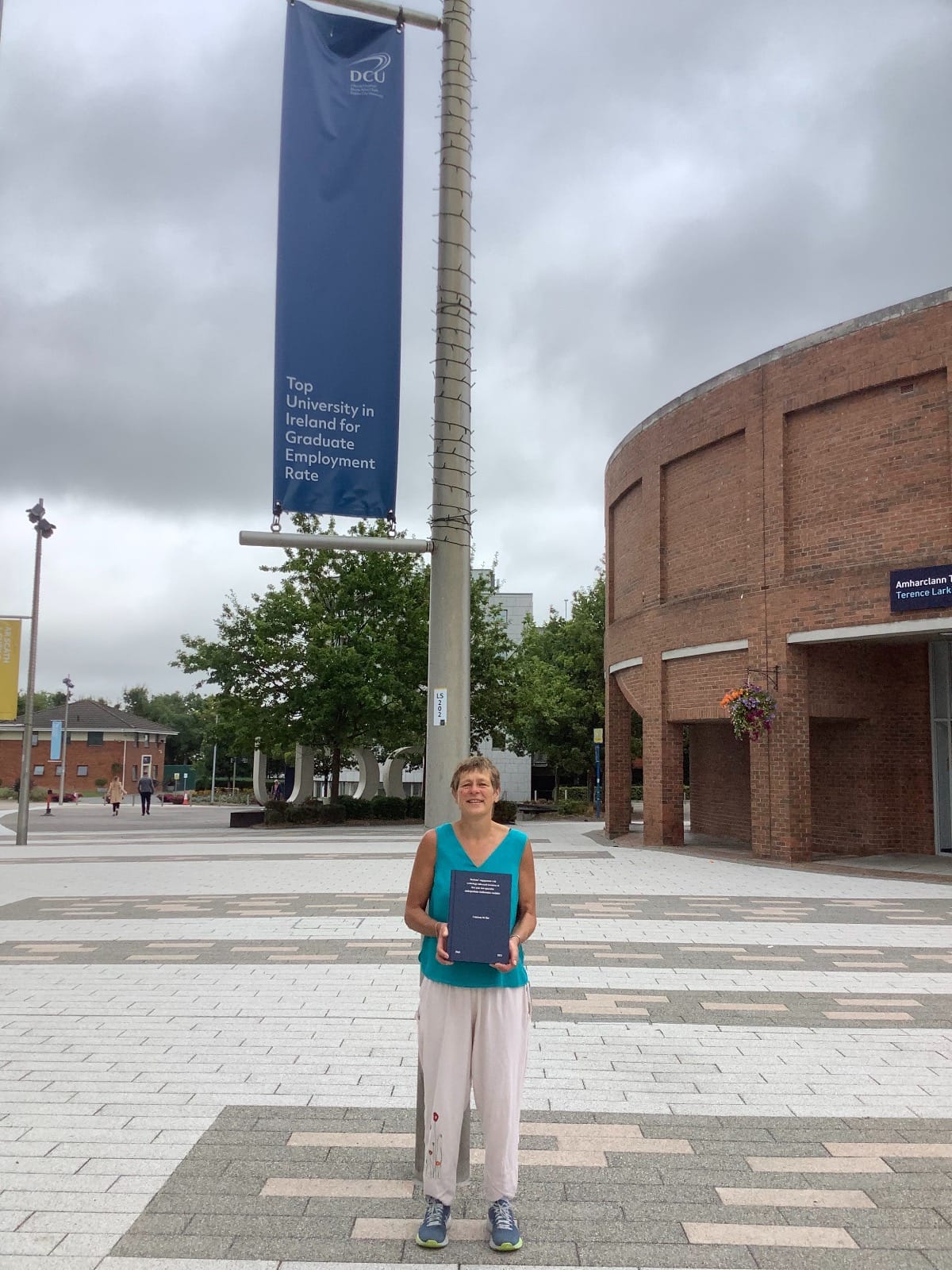Congratulations to two recent CASTeL PhD students Dr Aidan Fitzsimon supervised by Dr Eabhnat Ní Fhloinn and Dr Caitríona Ní Shé also supervised by Dr. Ní Fhloinn and co-supervised with Dr. Ciarán Mac an Bhaird of Maynooth University). Read on for more details about these two graduates and the type of graduate research being undertaken in CASTeL.
Dr Aidan Fitzsimon “Improving the Problem-solving Potential (PsP) of Highly-able Transition Year Students through Participation in a Mathematics Intervention”.
This research focussed on addressing the additional educational needs of highly-able students in Ireland by targeting an improvement in their mathematical Problem-solving Potential (PsP), a newly-designed triad construct with three influencing factors: problem-solving skills, mindset, and mathematical resilience. In order to achieve that, a mathematics intervention was designed, which utilised collaborative problem-solving as the pedagogical approach, following the Collaborative Problem-solving (CoPs) model specifically designed for this research. The intervention was implemented across six cohorts of students, accessed through the Centre for Talented Youth Ireland, over a three-year period, and resulted in an increased PsP for 97% of participants.
Dr Caitríona Ní Shé: Title “Students’ engagement with technology-enhanced resources in first year non-specialist undergraduate mathematics modules”

While students undertaking first-year undergraduate mathematics modules report using technology-enhanced resources for their studies, and lecturers invest time and effort into developing such resources, there has been little research on the factors that encourage students to engage with particular resources or in what ways students use these to support their learning. A team of academics from four higher education institutes in Ireland developed a suite of resources, called Technology-enhanced Resources for Mathematics Education (TeRMEd), for first-year non-specialist mathematics modules. The main aim of this research was to explore why, and in what way, students engaged with these resources to support their learning and to determine what factors of the implementation environment impacted on this engagement. As part of this research, the TeRMEd classification framework was developed. The outcomes of this research will inform mathematics educators on appropriate evaluation of technology-enhanced resources and on how best to implement them to ensure appropriate student engagement.
